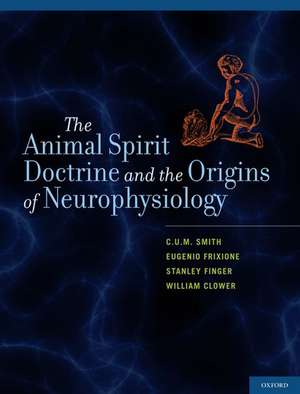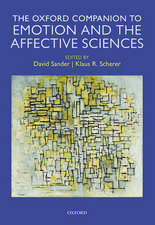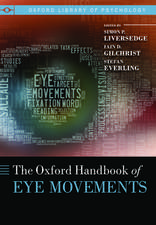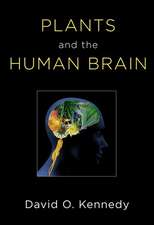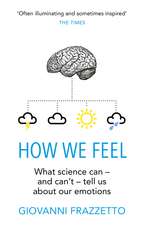The Animal Spirit Doctrine and the Origins of Neurophysiology
Autor C. U. M. Smith, Eugenio Frixione, Stanley Finger, William Cloweren Limba Engleză Hardback – 2 aug 2012
Preț: 991.85 lei
Preț vechi: 1495.31 lei
-34% Nou
Puncte Express: 1488
Preț estimativ în valută:
189.80€ • 202.95$ • 158.24£
189.80€ • 202.95$ • 158.24£
Carte tipărită la comandă
Livrare economică 07-12 aprilie
Preluare comenzi: 021 569.72.76
Specificații
ISBN-13: 9780199766499
ISBN-10: 0199766495
Pagini: 304
Dimensiuni: 282 x 224 x 25 mm
Greutate: 1.27 kg
Editura: Oxford University Press
Colecția OUP USA
Locul publicării:New York, United States
ISBN-10: 0199766495
Pagini: 304
Dimensiuni: 282 x 224 x 25 mm
Greutate: 1.27 kg
Editura: Oxford University Press
Colecția OUP USA
Locul publicării:New York, United States
Notă biografică
Chris Smith holds degrees in Zoology, Physics and Biophysics and a PhD in Neuroscience. Since retiring as Dean of the Faculty of Life and Health Sciences at Aston in 1996 he has devoted his time to the history and philosophy of neuroscience. He has published a number of books on neuroscience and the history of biology and has edited books on cranial trepanation, Erasmus Darwin, and eighteenth-century neuroscience. He has published some 140 academic papers and chapters and has acted as section editor in neurophilosophy for the Journal of the History of the Neurosciences.Eugenio Frixione is a cell physiologist who has published mainly experimental basic research on several mechanisms of cell motility in neural and epithelial tissues, and in unicellular parasites. Recently he has published studies on the intellectual evolution of major concepts about cell structure and function, as well as on key advances in the understanding of muscle physiology and other instances of biological motion. Stanley Finger first studied recovery from brain damage and then turned to the history of the neurosciences. His monographs in the latter domain include Origins of Neuroscience (with OUP), Minds Behind the Brain (with OUP), Doctor Franklin's Medicine, and most recently (with OUP), A Shocking History of Electric Fishes. He has edited books on cranial trepanation, eighteenth-century neuroscience, and the history of neurology, has published approximately 150 papers in edited journals, and has long served and continues to serve as editor of the Journal of the History of the Neurosciences.Will Clower is trained in neurophysiology, studying the mechanisms of movement control associated with motor learning. In the process of performing his neuroscience research in France, Dr Clower wrote and later published two books on the Mediterranean dietary behaviors. He now provides wellness programming for corporations, hospitals, and wellness centers around the United States.
